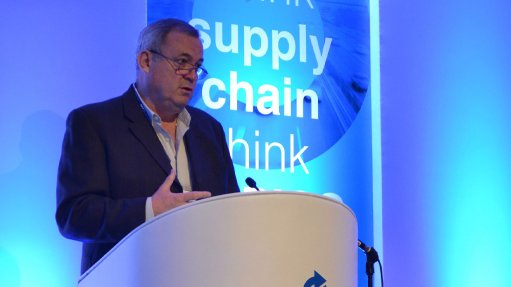
As South Africa slips into recession following two consecutive quarters of negative growth, supply chain experts met in Cape Town at SAPICS 2017 this week to share ways of keeping business competitive in a volatile but tech-enhanced world.
Geo-politics, trade rules and robotics jostled on the Conference agenda with leadership challenges, sustainability and corruption – highlighting the complexity of today’s commercial environment. SAPICS brings supply chain practitioners from Africa and abroad together each year in a networking and learning forum to keep abreast of leading trends.
Supply chain was increasingly the integrating element in modern business, according to SAPICS president Mungo Park – with improvements in supply chain design and implementation having direct and positive impacts on the business as a whole. Enhancing this over-arching integrative role was the power of digital technology, allowing big data to be harnessed and analysed.
Park said that speakers at the event also highlighted the way that the technology revolution – including robotics, automation and convergence – were disrupting business as usual.
“Digital technologies are catapulting innovative new businesses into the limelight, where companies like Amazon dominate the retail space and traditional competitors struggle to survive,” he said. “The economic transition is demanding new approaches, and supply chains are under pressure to ensure that businesses stay competitive.”
He said the need for the presence of supply chain leaders at board level was also raised, where they deserved to take their place alongside disciplines like finance; these professionals were ideally placed make a fundamental contribution to business performance.
Economic challenges and fast-evolving technologies were requiring the extensive re-skilling of employees in the supply chain space, as practitioners faced new and more demanding challenges to their roles and their businesses.
The conference also reflected on the impact of the international political landscape, said Park. Current policy uncertainties – especially following the UK’s Brexit vote and the election in the US of Donald Trump as president – made it more difficult to plan investments and manage risk.
It was increasingly vital for businesses to generate realistic baseline assumptions on which to quantify and monetise their risks – as a starting point for managing the volatile business environment.
About 800 delegates attended the SAPICS conference at Century City, where they heard from high-powered speakers from around the globe – including Sean Culey of UK-based consultancy Manucore, futurist and scenario planner Clem Sunter, APICS president Steve Georgevitch from aviation leader Boeing, and Olakira founder and former Shell SA managing director Tanya Kabalin.